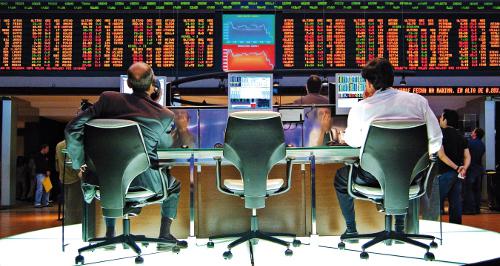The lowdown on common EFT investments

PHUKET: Given that so few managed funds are able to consistently beat important market benchmarks, Exchange Traded Funds (ETFs) are great investments, because they track and replicate the performance of key market indices at a minimal cost. However, the popularity of ETFs has led to their proliferation with some being better investments than others. So what are the best ETFs to own and which ones should you avoid?
Without naming individual ETFs, here are some general rules of thumb for selecting the right ones for your portfolio:
Buy ETFs that track important indices
ETFs tracking big name indices or markets like the Dow Jones Industrial Average, the S&P 500 and the Nasdaq should form the bulk of your ETF portfolio, but don’t overlook those that track other big indices like the Russell 2000 (small company stocks), those that track important sector indices (for example, the Dow Jones Utilities Average) and those that track important foreign stock indices like London’s FTSE, Tokyo’s Nikkei or the MSCI Emerging Markets Index. Moreover, don’t forget about bond ETFs which, like bonds, tend to do well in recessions or bear markets.
Avoid ETFs tracking obscure sectors or indices
ETFs have proliferated to such an extent that Vanguard’s founder John Bogle once sarcastically wrote in a Wall Street Journal op-ed: “Can you believe we now have an Emerging Cancer ETF?” That ETF, among others, has since closed after either failing to attract enough assets or after delivering poor returns to investors. You should also be aware that Bogle has said that individual sector and country ETFs are probably “too narrow for most” investors, but there might be times when such investments make sense.
Stick with plain vanilla ETFs
There could also be times where having a small position in so-called “inverse” ETFs (which short the market), leveraged ETFs (which use leverage in an attempt to generate outsized returns) or those tracking non-traditional assets (commodities) can make sense. However, you need to understand these ETF investments come with added and potentially significant risks while Vanguard’s Bogle has gone so far as to say that inverse and leveraged ETFs are where the “fruitcakes, nut cases and lunatic fringe” can be found.
Avoid illiquid ETFs
A major problem with ETFs tracking obscure sectors or markets along with some inverse or leveraged ETFs is their lack of liquidity because not many investors or traders are buying or selling them. This lack of liquidity could lead you to pay too much to buy and sell them.
Read the prospectus
The good thing about most plain vanilla ETFs is that they are fairly straightforward investments –meaning even less experienced investors should be able to read the prospectus and understand what they are doing. However, if reading the prospectus leaves you confused or if the prospectus is not well explained in plain simple English, you should find another ETF to invest in.
Be very careful when investing in commodity ETFs
There are two types of commodity ETFs – one type owning the physical commodity (say, gold bars) and the other type owning commodity futures contracts – meaning you need to read the prospectus carefully to understand the risks involved. Moreover, be aware that since commodity ETFs do not invest in securities, they tend to be regulated differently or are less regulated than other investments.
Avoid high fee ETFs
Most big ETFs on the market today will charge fees as low as the 0.04% to 0.25% range but there are some ETFs out there, usually “managed” ones or those with more exotic investment strategies (e.g. they invest in commodities, short the market or use leverage) which might charge fees as much as 1% or 2% (or even more). However and given the wide selection of low cost ETFs available, there is little reason to invest in one that comes with such high fees.
In conclusion, EFTs are a great way to diversify, lower expenses and grow your money. If you are unsure of which ETFs to put in your investment portfolio and how to buy them, call me for a free consultation and get your portfolio invested in the most efficient way possible.
Don Freeman is President of Freeman Capital Management, a Registered Investment Advisor with the US Securities Exchange Commission (SEC), based in Phuket, Thailand. He has over 15 years experience and provides personal financial planning and wealth management to expatriates. Specializing in UK and US pension transfers. Call 089-970-5795 or email: freemancapital@gmail.com.
— David Mayes
Latest Thailand News
Follow The Thaiger on Google News:
























